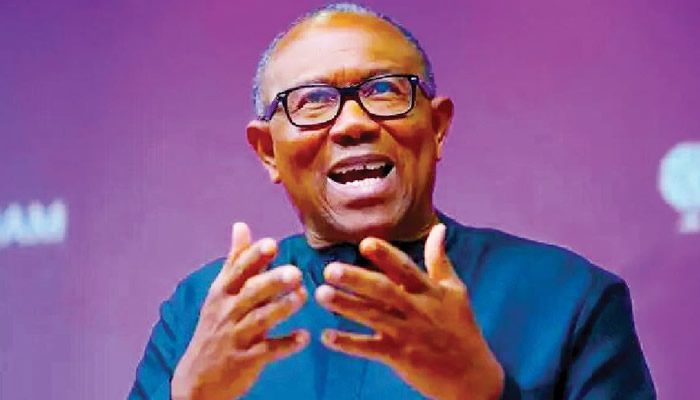Peter Obi, the Labour Party’s presidential candidate in the 2023 Nigerian general elections, has unequivocally denied any ongoing merger talks with other political parties, including the Peoples Democratic Party (PDP) and the New Nigeria Peoples Party (NNPP). During a press conference in Abuja, Obi dismissed such speculations, emphasizing that no agreements or collaborations are currently in place with any other political entity. He instead called for national unity and collective action to prepare for the 2027 elections, positioning the movement as a united front against the ruling All Progressives Congress (APC). This clarification comes amidst a swirling political landscape as various factions begin maneuvering and strategizing for the next electoral cycle.
Obi’s denial of merger talks signals the Labour Party’s intention to maintain its distinct identity and chart its own course in the political arena. The party’s impressive performance in the 2023 elections, where Obi garnered significant support and challenged the established political order, appears to have solidified its position as a viable political force. By rejecting the notion of merging with other parties, the Labour Party aims to consolidate its base, build on its recent gains, and emerge as a stronger, more independent contender in future elections. This strategy also allows the party to maintain its unique ideological stance and policy positions without being diluted or compromised by alliances with other parties.
The call for national unity and collective action underscores Obi’s vision for a collaborative approach to addressing Nigeria’s numerous challenges. He stressed the importance of working together, transcending party lines, to bring about the desired changes for the betterment of the nation. This message resonates with the growing sentiment among many Nigerians who are yearning for a departure from the divisive politics of the past and seeking a more unified and collaborative approach to governance. Obi’s emphasis on national unity aims to tap into this sentiment and rally support for a broader movement focused on national progress and development.
Beyond the political maneuvering, Obi also addressed the pressing issue of national security, expressing deep concern over the deteriorating situation. He characterized the current state of insecurity as tragic, emphasizing the urgent need for comprehensive measures to address the escalating violence across the country. This focus on security reflects a key component of Obi’s political platform, which prioritizes addressing the root causes of insecurity and restoring peace and stability to affected communities. The emphasis on this issue resonates with the widespread public anxiety about the escalating violence and the perceived inadequacy of the current government’s response.
The backdrop to Obi’s statements is the outcome of the 2023 presidential election, which saw Bola Tinubu of the APC emerge victorious. Tinubu secured victory in 12 out of Nigeria’s 36 states, amassing a substantial number of votes and defeating his closest rivals, including Atiku Abubakar of the PDP. This result, while contested by some, has shaped the current political landscape and sets the stage for the upcoming 2027 elections. Obi’s call for unity and collaborative action can be interpreted as a strategic move to position the Labour Party as the leading alternative to the ruling APC, offering a distinct vision for the future of Nigeria.
As the political landscape gears up for the 2027 elections, Obi’s pronouncements serve as a clear indication of his strategic vision for the Labour Party. By rejecting merger talks, emphasizing national unity, and highlighting the urgent need to address critical challenges like insecurity, Obi is positioning the Labour Party as a strong, independent force committed to driving positive change in Nigeria. His focus on building a broad-based movement, united in its desire for a better future, reflects a long-term strategy aimed at challenging the established political order and offering a viable alternative to the ruling party. The next few years will be crucial for the Labour Party as it seeks to translate its recent electoral gains into sustained political influence and build momentum for the 2027 elections.














